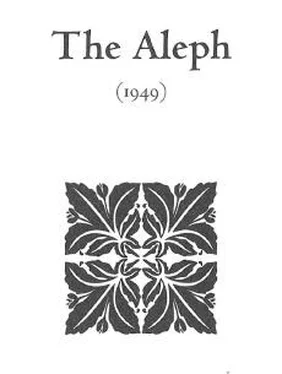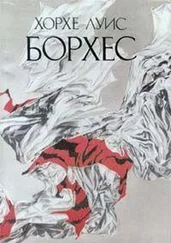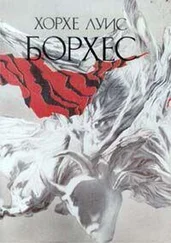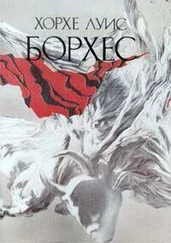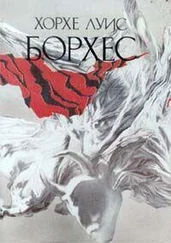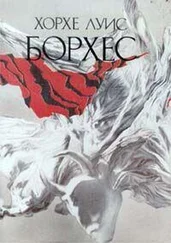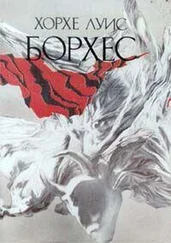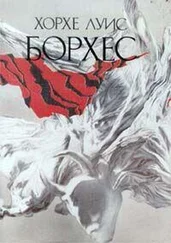Хорхе Борхес - Collected Fictions
Здесь есть возможность читать онлайн «Хорхе Борхес - Collected Fictions» весь текст электронной книги совершенно бесплатно (целиком полную версию без сокращений). В некоторых случаях можно слушать аудио, скачать через торрент в формате fb2 и присутствует краткое содержание. Год выпуска: 1999, ISBN: 1999, Издательство: Penguin (UK), Жанр: Старинная литература, на английском языке. Описание произведения, (предисловие) а так же отзывы посетителей доступны на портале библиотеки ЛибКат.
- Название:Collected Fictions
- Автор:
- Издательство:Penguin (UK)
- Жанр:
- Год:1999
- ISBN:9780140286809
- Рейтинг книги:5 / 5. Голосов: 1
-
Избранное:Добавить в избранное
- Отзывы:
-
Ваша оценка:
- 100
- 1
- 2
- 3
- 4
- 5
Collected Fictions: краткое содержание, описание и аннотация
Предлагаем к чтению аннотацию, описание, краткое содержание или предисловие (зависит от того, что написал сам автор книги «Collected Fictions»). Если вы не нашли необходимую информацию о книге — напишите в комментариях, мы постараемся отыскать её.
Collected Fictions — читать онлайн бесплатно полную книгу (весь текст) целиком
Ниже представлен текст книги, разбитый по страницам. Система сохранения места последней прочитанной страницы, позволяет с удобством читать онлайн бесплатно книгу «Collected Fictions», без необходимости каждый раз заново искать на чём Вы остановились. Поставьте закладку, и сможете в любой момент перейти на страницу, на которой закончили чтение.
Интервал:
Закладка:
m) a work entitled Les problèmes d'un problème (Paris,1917), which discusses in chronological order the solutions to the famous problem of Achilles and the tortoise (two editions of this work have so far appeared; the second bears an epigraph consisting of Leibniz' advice "Ne craignez point, monsieur, la tortue," and brings up to date the chapters devoted to Russell and Descartes);
n) a dogged analysis of the "syntactical habits" of Toulet (N. R. F., March 1921) (Menard, I recall, affirmed that censure and praise were sentimental operations that bore not the slightest resemblance to criticism);
o) a transposition into alexandrines of Paul Valéry's Cimetière marin (N. R. F., January 1928);
p) a diatribe against Paul Valéry, in Jacques Reboul's Feuilles pourla suppressionde la réalité (which diatribe, I might add parenthetically, statesthe exact reverse of Menard's true opinion of Valéry; Valéry understood this, and the two men's friendship was never imperiled);
q) a "definition" of the countessde Bagnoregio, in the "triumphant volume" (the phrase is that of another contributor, Gabrieled 'Annunzio) published each year by that lady to rectify the inevitable biases of the popular press and to present "to the world and all of Italy" a true picture of her person, which was so exposed (by reason of her beauty and her bearing) to erroneous and/or hasty interpretations;
r) a cycle of admirable sonnets dedicated to the baronessde Bacourt (1934);
s) a handwritten list of lines of poetry that owe their excellence to punctuation. [1]
This is the full extent (save for a few vague sonnets of occasion destined for Mme. Henri Bachelier's hospitable, or greedy, album des souvenirs) of the visible lifework of Pierre Menard, in proper chronological order. I shall turn now to the other, the subterranean, the interminably heroic production—the œuvre nonpareil, the œuvre that must remain—for such are our human limitations!—unfinished. This work, perhaps the most significant writing of our time, consists of the ninth and thirty-eighth chapters of Part I of Don Quixote and a fragment of Chapter XXII. I know that such a claim is on the face of it absurd; justifying that "absurdity" shall be the primary object of this note. [2]
Two texts, of distinctly unequal value, inspired the undertaking. One was that philological fragment by Novalis—number 2005 in the Dresden edition, to be precise—which outlines the notion of total identification with a given author. The other was one of those parasitic books that set Christ on a boulevard, Hamlet on La Cannabière, or don Quixote on Wall Street. Like every man of taste, Menard abominated those pointless travesties, which, Menard would say, were good for nothing but occasioning a plebeian delight in anachronism or (worse yet) captivating us with the elementary notion that all times and places are the same, or are different. It might be more interesting, he thought, though of contradictory and superficial execution, to attempt what Daudet had so famously suggested: conjoin in a single figure (Tartarin, say) both the Ingenious Gentleman don Quixote and his squire....
Those who have insinuated that Menard devoted his life to writing a contemporary Quixote besmirch his illustrious memory. Pierre Menard did not want to compose another Quixote, which surely is easy enough—he wanted to compose the Quixote. Nor, surely, need one have to say that his goal was never a mechanical transcription of the original; he had no intention of copying it. His admirable ambition was to produce a number of pages which coincided—word for word and line for line—with those of Miguel de Cervantes.
"My purpose is merely astonishing," he wrote me on September 30, 1934, from Bayonne. "The final term of a theological or metaphysical proof—the world around us, or God, or chance, or universal Forms—is no more final, no more uncommon, than my revealed novel. The sole difference is that philosophers publish pleasant volumes containing the intermediate stages of their work, while I am resolved to suppress those stages of my own." And indeed there is not a single draft to bear witness to that years-long labor.
Initially, Menard's method was to be relatively simple: Learn Spanish, return to Catholicism, fight against the Moor or Turk, forget the history of Europe from 1602 to 1918— be Miguel de Cervantes. Pierre Menard weighed that course (I know he pretty thoroughly mastered seventeenth-century Castilian) but he discarded it as too easy. Too impossible, rather!, the reader will say. Quite so, but the undertaking was impossible from the outset, and of all the impossible ways of bringing it about, this was the least interesting. To be a popular novelist of the seventeenth century in the twentieth seemed to Menard to be a diminution. Being, somehow, Cervantes, and arriving thereby at the Quixote—that looked to Menard less challenging (and therefore less interesting) than continuing to be Pierre Menard and coming to the Quixote through the experiences of Pierre Menard. (It was that conviction, by the way, that obliged him to leave out the autobiographical foreword to Part II of the novel. Including the prologue would have meant creating another character—"Cervantes"—and also presenting Quixote through that character's eyes, not Pierre Menard's. Menard, of course, spurned that easy solution.) "The task I have undertaken is not in essence difficult," I read at another place in that letter. "If I could just be immortal, I could do it." Shall I confess that I often imagine that he did complete it, and that I read the Quixote—the entire Quixote—as if Menard had conceived it? A few nights ago, as I was leafing through Chapter XXVI (never at-tempted by Menard), I recognized our friend's style, could almost hear his voice in this marvelous phrase: "the nymphs of the rivers, the moist and grieving Echo." That wonderfully effective linking of one adjective of emotion with another of physical description brought to my mind a line from Shakespeare, which I recall we discussed one afternoon:
Where a malignant and a turban'd Turk...
Why the Quixote? my reader may ask. That choice, made by a Spaniard, would not have been incomprehensible, but it no doubt is so when made by a Symboliste from Nîmes, a devotee essentially of Poe—who begat Baudelaire, who begat Mallarmé, who begat Valéry, who begat M. Edmond Teste. The letter mentioned above throws some light on this point. "The Quixote? explains Menard,
deeply interests me, but does not seem to me— comment dirai-je? — inevitable. I cannot imagine the universe without Poe's ejaculation "Ah, bear in mind this garden was enchanted!" or the Bateauivre or the Ancient Mariner, but I know myself able to imagine it without the Quixote. (I am speaking, of course, of my personal ability, not of the historical resonance of those works.) The Quixote is a contingent work; the Quixote is not necessary. I can premeditate committing it to writing, as it were—I can write it—without falling into a tautology. At the age of twelve or thirteen I read it—perhaps read it cover to cover, I cannot recall. Since then, I have carefully reread certain chapters, those which, at least for the moment, I shall not attempt. I have also glanced at the interludes, the comedies, the Galatea, the Exemplary Novels, the no doubt laborious Travails of Persiles and Sigismunda, and the poetic Voyage to Parnassus.... My general recollection of the Quixote, simplified by forgetfulness and indifference, might well be the equivalent of the vague foreshadowing of a yet unwritten book. Given that image (which no one can in good conscience deny me), my problem is, without the shadow of a doubt, much more difficult than Cervantes'. My obliging predecessor did not spurn the collaboration of chance; his method of composition for the immortal book was a bit à la diable, and he was often swept along by the inertiae of the language and the imagination. I have assumed the mysterious obligation to reconstruct, word for word, the novel that for him was spontaneous. This game of solitaire I play is governed by two polar rules: the first allows me to try out formal or psychological variants; the second forces me to sacrifice them to the "original" text and to come, by irrefutable arguments, to those eradications.... In addition to these first two artificial constraints there is another, inherent to the project. Composing the Quixote in the early seventeenth century was a reasonable, necessary, perhaps even inevitable undertaking; in the early twentieth, it is virtually impossible. Not for nothing have three hundred years elapsed, freighted with the most complex events. Among those events, to mention but one, is the Quixote itself.
Читать дальшеИнтервал:
Закладка:
Похожие книги на «Collected Fictions»
Представляем Вашему вниманию похожие книги на «Collected Fictions» списком для выбора. Мы отобрали схожую по названию и смыслу литературу в надежде предоставить читателям больше вариантов отыскать новые, интересные, ещё непрочитанные произведения.
Обсуждение, отзывы о книге «Collected Fictions» и просто собственные мнения читателей. Оставьте ваши комментарии, напишите, что Вы думаете о произведении, его смысле или главных героях. Укажите что конкретно понравилось, а что нет, и почему Вы так считаете.
